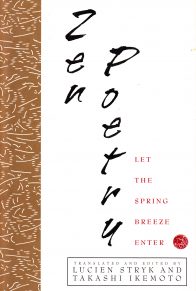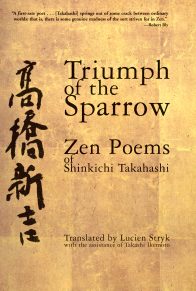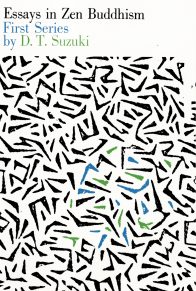The tales vary considerably in subject and literary value, which is attributable to the composite authorship of the collection, and those given here are altogether typical in their dramatic structure and in the morals they draw.
THE ASS IN THE LION’s SKIN
“Nay, this is not a lion’s roar.” This also was related by The Teacher concerning Kok”lika: and it was while dwelling in Jetavana monastery. Kok”lika, at the time, was desirous of intoning a doctrinal recitation before the congregation of the priests. When The Teacher heard this, he related the following tale:–
Once upon a time, when Brahmadatta was reigning at Benares, the Future Buddha, having been born in a farmer’s family, and now come of age, was making his living by husbandry. Now at that time, a certain peddler went about selling his wares, which he carried on the back of an ass. And at every place he came to, he would unload the ass, and dressing him up in the skin of a lion, let him loose in some field of rice or barley. And the field-watchers did not dare approach, as they thought it was a lion. Now one day the peddler took up his abode at the gate of a village, and while his breakfast was cooking, he dressed up the ass in the lion’s skin, and let him loose in a field of barley. The field-watchers did not dare approach, as they thought it was a lion, but went home and announced the news. Then all the inhabitants of the village took up arms, and blowing conch-shells, and beating drums, went to the field and shouted, so that the ass became afraid for his life, and brayed. Then the Future Buddha knew it was an ass, and pronounced the first stanza:
“Nay, this is not a lion’s roar,Nor tiger, panther, gives its vent;But dressed up in a lion’s skin,It is a wretched ass that brays.”
And also the inhabitants of the village knew it was an ass, and beat him until his bones broke, and took the lion’s skin away with them. Then came the peddler, and seeing that his ass had come to grief, he pronounced the second stanza:
“Long might the ass have lived to eatThe green and tender barley grain,Accoutred in the lion’s skin,But that he brayed, and ruined all”
And while he was thus speaking, the ass died, whereupon the peddler left him and went his way.
The Teacher, having given this doctrinal instruction, identified the characters in the Birth-Story:
“At that time the ass was Kok”lika, but the wise farmer was I myself.”
QUAIL, CROW, FLY, FROG, AND ELEPHANTS
Hearing that the monks of Kosambi were quarreling, the Exalted One went to them and said: “Enough, monks! No quarreling! No brawling! No contending! No wrangling!” Then he said: ‘monks, quarrels, brawls, contentions, wrangles,–all these are unprofitable. For because of a quarrel even a tiny quail brought about the destruction of a noble elephant”
In times past, when Brahmadatta ruled at Benares, the Future Buddha was reborn as an elephant. He grew up to be a fine big animal, acquired a retinue of eighty thousand elephants, and beaming the leader of a herd, made his home in the Himalaya region. At that time a tiny female quail laid her eggs in the elephants’ stamping-ground. When the eggs were hatched, the fledglings broke the shells and came out. Before their wings had grown and while they were yet unable to fly, the Great Being came to that spot with his retinue of eighty thousand elephants in search of food.
When the tiny quail saw him, she thought: “This elephant-king will crush my fledglings and kill them. Well, I will ask of him righteous protection for the defense of my little ones.” So folding her wings and standing before him, she uttered the first stanza:
I salute you, elephant of sixty years,Forest-ranger, glorious leader of a herd;With my wings I do you homage. I am weak: do not kill my little ones.
Said the Great Being: ‘do not worry, tiny quail; I will protect your little ones.” And he stood over the fledglings, and the eighty thousand elephants passed by. Then he addressed the tiny quail: “Behind us comes a single solitary elephant; he will not obey our command. If you ask him also when he comes, you may obtain safety for your little ones.” So saying, he went his way.
The tiny quail went forth to meet the solitary elephant, did homage to him with her wings, and uttered the second stanza:
I salute you, solitary elephant,Forest-ranger, pasturing on mountain and on hill;With my wings I do you homage.I am weak: do not kill my little ones.
The solitary elephant, hearing her words, uttered the third stanza:
I will kill your little ones, tiny quail What can you do to me? You are a weakling.
Even a hundred thousand like youCould I crush with my left foot.
And so saying, he pulverized her little ones with his foot, washed them away with a torrent of urine, and went his way trumpeting. The tiny quail perched on the branch of a tree and thought: “Just now you go your way trumpeting. In only a few days you will see what I can dol You do not understand that the mind is stronger than the body. Ah, but I will make you understand!” And threatening him, she uttered the fourth stanza:
For not always does strength avail;For strength is the destruction of a fool.Elephant-king, I will do you harm,You who killed my little ones since I was weak.
Thus spoke the tiny quail. For a few days she ministered to a crow. The crow was pleased and said: “What can I do for you?” Said the tiny quail: ‘master, there is only one thing I want done. I expect you to peck out the eyes of that solitary elephant” ‘very well,” assented the crow. The tiny quail then ministered to a green fly. The fly also said: “What can I do for you?” Said the tiny quail: “When this crow has put out the eyes of the solitary elephant, I wish you would drop a nit on them.” ‘very well,” assented the fly also. The tiny quail then ministered to a frog. Said the frog: “What can I do?” Said the tiny quail: “When this solitary elephant has gone blind and seeks water to drink, then please squat on the mountain-top and croak; and when he has climbed to the top of the mountain, then please hop down and croak at the bottom. This is all I expect of you.” The frog also, hearing her words, assented, saying, ‘very well.”
Now one day the crow pecked out both of the elephant’s eyes, and the fly let a nit drop on them. The elephant, eaten up by maggots, maddened with pain, overcome with thirst, wandered about seeking water to drink. At that moment the frog, squatting on the mountain-top, let out a croak. The elephant thought: “There must be water there;” and climbed the mountain. Then the frog hopped down, and squatting at the bottom, let out a croak. The elephant thought: “There must be water there.” And going to the brink of the precipice, he tumbled and fell to the foot of the mountain, and met destruction.
When the tiny quail realized that he was dead, she cried out: “I have seen the back of my enemy!” And pleased and delighted, she strutted over his shoulders, and passed away according to her deeds.
Behold the quail, the crow, the fly, the frog!They slew the elephant! Behold the hatred of the haters!















